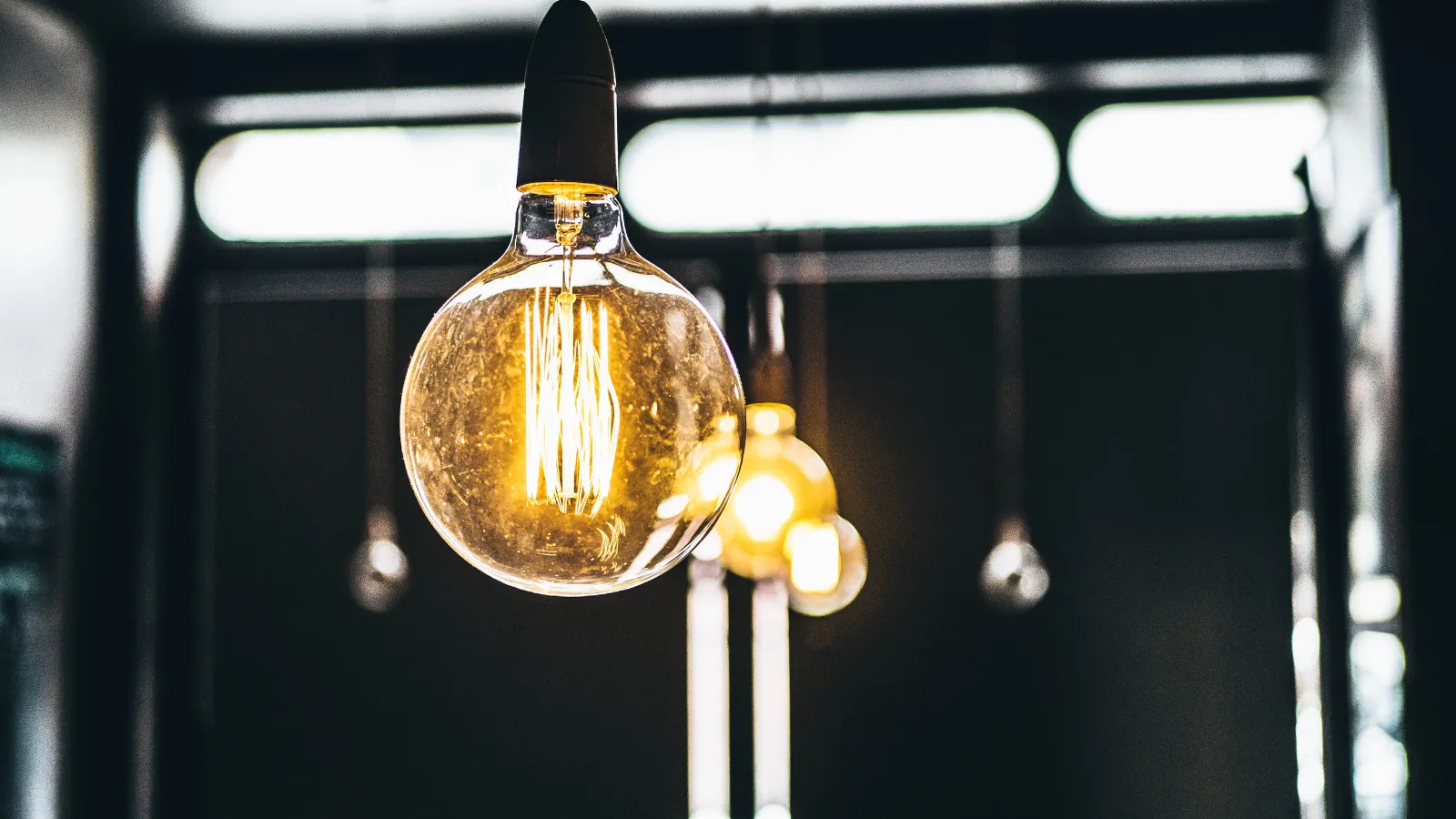How to Save Electricity This Summer

In the great Atlanta area, summer means one thing. It's hot! So, naturally many homeowners start asking about how to save electricity. Ultimately, through common-sense strategies and a few home maintenance projects, homeowners can start saving electricity today.
Save Electricity By Reducing A/C Usage
Obviously, we become quite frustrated as our electric bills rise during the summer. However, with the summer heat, our A/Cs continue running in order to provide a cool and safe home. As a result, homeowners face a conundrum.
Live in a hot home or pay a large electric bill. But, as the home comfort experts at GreenHomes America explain limiting the use of the air conditioner remains possible.
"Many homeowners choose to keep the thermostat (and home temperature) up, which causes your home to remain warm and humid. In order to keep your house cool, reduce utility bills, and improve comfort, upgrades to the home and the cooling system need to be considered. Primarily, limiting the use of the air conditioner."
How?
1. Seal Air Leaks
Homes lose a lot of air to the elements. Yes, throughout the summer, cooled air leaves your home through numerous gaps, cracks, and voids connecting the interior of your home to the outside. Your air conditioner works hard to cool the air in your home and it literally floats away, which costs homeowners in extra energy consumption and higher bills.
As a result, sealing air leaks helps reduce your reliance on your A/C.
2. Add Insulation
Did you know that a proper and insulated attic helps reduce heat transfer by up to 25% or more? Yes, insulation works in the summer because it prevents the sun from baking your home!
In simple terms: insulation blocks heat from entering the home in the summer. (Conversely, in the winter, insulation holds heat inside your home.) Naturally, blocking heat and keeping cold air inside your home means less electricity powering the A/C.
As GreenHomes America explains:
"Insulation, whether foam, fiberglass, or cellulose, provides a barrier against the transfer of heat in and out of your home. The insulation, which prevents the heat transfer from shingles and siding also reduces the overall workload required by the cooling system. Overall, the electricity required to keep your home at an optimum temperature and humidity decrease in a well-insulated home. That means less money spent on utility bills!"
3. Inspect the Ductwork
Finally, air leaks in the ductwork lead to more wasted money.
Homeowners should know that uninsulated ductwork contributes towards home comfort problems. However, keep an eye out for some warning signs that identify potential issues with your ductwork.
- Air temperature coming out of supply registers from ductwork in unconditioned spaces is very cool to the touch.
- Air temperature coming out of supply registers from ductwork in unconditioned spaces is warm to the touch.
- Ductwork has visible signs of condensation.
- Insulating and sealing ductwork in unconditioned basements will make the basement spaces colder.
GreenHomes America explains how reducing the air leaks in your ductwork helps reduce your A/C workload and ultimately lowers your electricity costs.
"As your air conditioner works to cool the home, air leaks in the ductwork can lose some of the cooled air before it ever has a chance to air condition your home. This cold air from your air conditioning system is expensive but is too often lost to the outside before it has a chance to cool you on a hot day!"
Save Electricity With an Energy Audit
The Washington Post explains how energy audit helps understand your electrical costs.
"Getting a quick energy assessment or a more thorough energy audit can determine how much energy your home uses, as well as which upgrades would make the most sense for your home and your finances. An audit may include an energy rating, a number that indicates how energy-efficient your home is and how much it will increase if you make recommended upgrades."
Yes, an energy audit provides recommendations that improve the efficiency of your home. As a result, not only will your A/C usage reduce, but also your heat in the winter.
Additionally, Snappy Electric, Plumbing, Heating, & Air remains committed to helping homeowners understand how their homes operate and work towards reducing your expenses. Part of our work in the community derives from our involvement with GreenHomes America.
Our Home Comfort and Energy Checkup pinpoints the sources of high energy consumption as well as health and comfort issues such as air leaks, moisture build-up, carbon monoxide infiltration, leaking and contaminated air ducts, insufficient insulation, and much more!
As the exclusive Georgia partner of GreenHomes America, Snappy Electric, Plumbing, Heating, & Air and our Building Performance Institute Certified Professionals are uniquely qualified to pinpoint sources of wasted energy in your home. Our team is ready and able to pinpoint the following during the checkup process:
- Air leaks
- Insufficient insulation
- Moisture build-up
- Defective and leaking ducts
- Gas or carbon monoxide leaks
- Ventilation problems
- Inefficient lighting and appliances
- Inefficient heating & cooling systems
Give us a call to schedule a FREE Assessment and let one of our Energy Advisors determine the efficiency of your home.
Save Electricity With Common Sense
Last, but certainly, not least, one of the best ways to save electricity remains common sense. For example, turning off the lights, TVs, or any electrical devices when you leave a room provides an immediate reduction in electric costs.
In particular, turn off the fan when nobody is in the room! Fans move air around and only provide the cooling effect when people are in the room. Along those lines, ensure the windows and doors remain closed when the A/C is running.
Finally, take a look at some other common sense and simple projects that help save electricity.
1. Add Energy Efficient Lighting & Appliances
Yes, energy-efficient lighting and other appliances make a big difference.
For example, lighting has made remarkable improvements over the years, and energy efficient light bulbs are a leading way to reduce energy usage, while saving money. The old incandescent bulbs used up a lot more energy than the halogen incandescent, CFL, and LED bulbs you can find today.
Plus, consider upgrading your appliances. By upgrading to energy-efficient appliances you can cut costs and save energy while limiting your carbon footprint.
2. Dry Clothes Outside
Take advantage of the sunlight and dry your clothes outside (at least when it's not raining!). If that's not an option, then improve the efficiency of your dryer by cleaning the lint trap before every load and using a low heat setting, which consumes less electricity. Also, if your dryer includes a sensor that detects dry close, use it to shorten the drying cycle.
Additionally, try washing with cold water, which saves energy. In fact, according to EnergyStar.gov, water heating makes up nearly 90% of the energy required to operate a clothes washer.
3. Check and Change the Air Filters
As part of spring and summer home maintenance, check your air filters. Particularly as you start using your A/C, check and change the filter. Ideally, filters should be changed monthly, but the timing remains dependent on overall usage.
Why Do Clean Air Filters Make Such a Difference?
Air from inside the home is pulled in through it, cooled by the A/C. The cooled air moves into the rest of the home through your HVAC ductwork. Therefore, the air filter prevents dirt, dust, and other particles from entering your system and moving to other areas of the home. If your system contains a dirty or clogged filter, then it reduces airflow and makes the system work harder to keep cool down your home. As a result, your A/C works harder, meaning more electricity and costs.
Looking for More Ideas on How to Save Electricity?
Consider an electrical inspection. In addition to keeping your home and family safe, the National Fire Protection Association (NFPA) recommends an annual inspection.
When provided the opportunity to earn your trust, we can perform Atlanta's most complete home electrical safety inspection on your house and answer all of your questions, along with pinpointing any areas of wasted electricity!
Any questions, call or contact Snappy Electric, Plumbing, Heating, & Air today!

